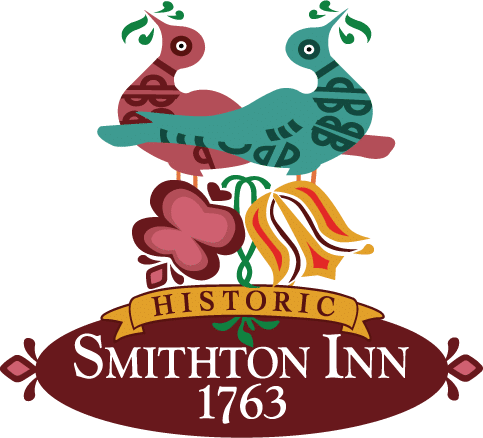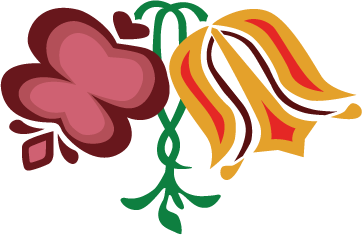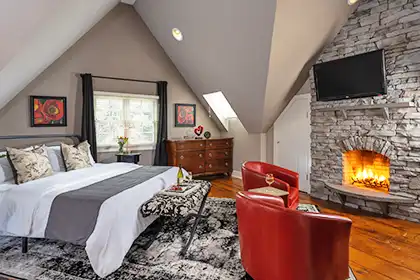5 Reasons to Visit the Ephrata Cloister
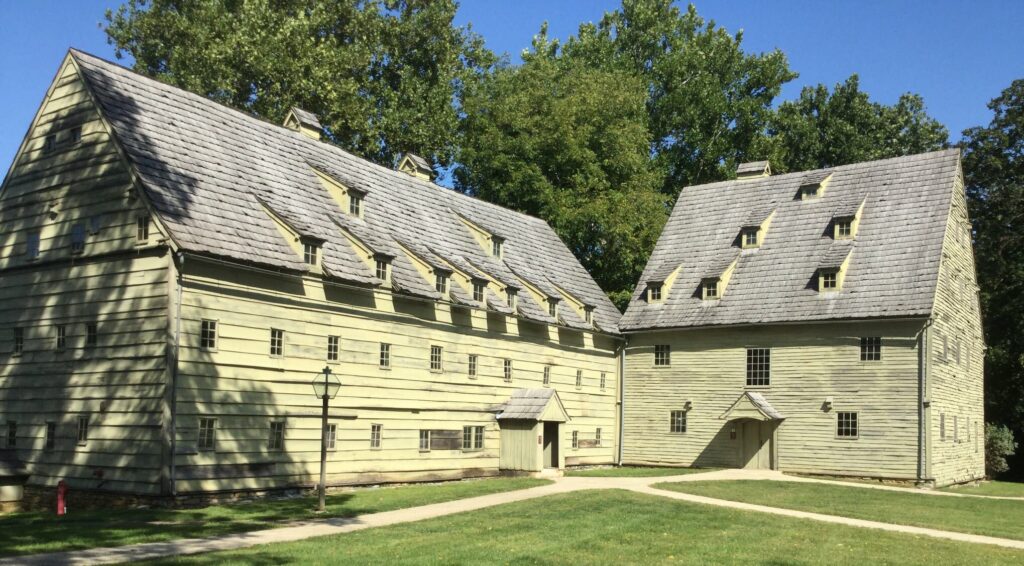
Pennsylvania is a playground for history buffs. Indeed, our state’s gorgeous countryside is the home to many historical sites and served as a backdrop for American history. While you’re staying at the Historic Smithton Inn, take some time to visit one of our favorite attractions: the Ephrata Cloister! Tour the site, learn about its past, and discover the heritage of the fabulous choir. Read on to learn more about the Cloister and start planning your trip today! Then, discover more amazing historical sites in our free Vacation Guide . The guide even includes our favorite local restaurants, events, shops, outdoor adventures, and more!
This blog post is all about 5 Reasons to Visit the Ephrata Cloister!
#1: Take a Journey Through American History
If you’re planning a trip to the best historical sites around Ephrata, then you’ve got to stop at the Ephrata Cloister. The Ephrata Cloister is just one of the many fascinating historic sites and museums along the Pennsylvania trail of history (there are 26 altogether.)
After all, it was one of the first religious communities in America! German settlers founded the Cloister in 1732, and today, it’s a United States National Historic Landmark supporting the mission of preservation. The idea behind the Cloister’s creation was to create a spiritual community consisting of celibate Brothers and Sisters as well as congregation of families. Within a few years, the hermitage grew into a thriving community with more than 300 active members.
Life in the Cloister included art and music on top of the religious community and devotion. The community even became known for self-composed acapella music as well as Frakturschriften , a Germanic calligraphy style. The original buildings of Ephrata Cloister had its own publishing center, which included a paper mill, Cloister printing office, and book bindery. The Historic Ephrata Cloister printed the largest book published within the colonies prior to the Revolutionary war, the Martyrs Mirror.
#2: Enjoy Daily Tours of the Cloister
Guests are welcome to tour the Ephrata Cloister daily. Tours typically begin with a 15 minute video that explains the history and beliefs of early Cloister members. Visitors then move on to a self-guided exhibit in the Visitor Center and a guided tour of the historic buildings. Explore the Sister’s dormitory and the Meetinghouse, or pick up souvenirs at the Museum Store. The docents who conduct tours are very knowledgeable and eager to share their insights with visitors. You’ll not only learn about the community’s religious beliefs, you’ll also hear about what they ate, the types of work and chores they undertook and how they treated illnesses. There are so many unique and intriguing facets to the Cloister Members including their role in early American history, views on feminism, mystical religious beliefs and more. Taking a tour is the best way to imagine and learn from their lifestyle.
#3: Attend Special Events
The Historic Ephrata Cloister hosts several special events throughout the year where Visitors can immerse themselves in the Cloister’s history. So if you’re lucky enough to be in town during one of these times, you should definitely consider attending!
- Pennsylvania Charter Day (March 7)
- Apple Dumpling Days (First weekend in October)
- Christmas at the Cloister (Begins the 2nd Monday of December)
- Lantern Tours (December 26 – 29)
#4: Listen to Delightful Music
The musical tradition of the Cloister continues today. The property has a chorus that brings to life traditional music from the past. The choraliers wear white robes patterned after the 18th-century garb that was donned by the Brothers and Sisters of Ephrata. Performances are held at the Ephrata Cloister as well as throughout the region, so be on the lookout when you’re in the area!
#5: Buy Unique PA Dutch Gifts

The Gift Shop at the Ephrata Cloister is a hidden gem for locals and tourists alike! For instance, visitors can take home special handcrafted items including note cards with fractur drawings, hand-woven scarves, hand made PA Dutch Redware pottery and Scherenschnitte (cut paper) framed pictures. The gift shop itself is a historic barn with low ceilings and massive hand-hewn beams. The ethereal melodies of the Cloister Choir can be heard throughout the shop. If you’re looking for a special gift that his historical or local significance, then the Cloister Gift Shop is the best place to begin your quest. In fact, quite a few redware pieces on display at the Historic Smithton Inn were purchased at the Cloister’s gift shop!
Stay in a Ephrata Bed and Breakfast Tied to the Cloister
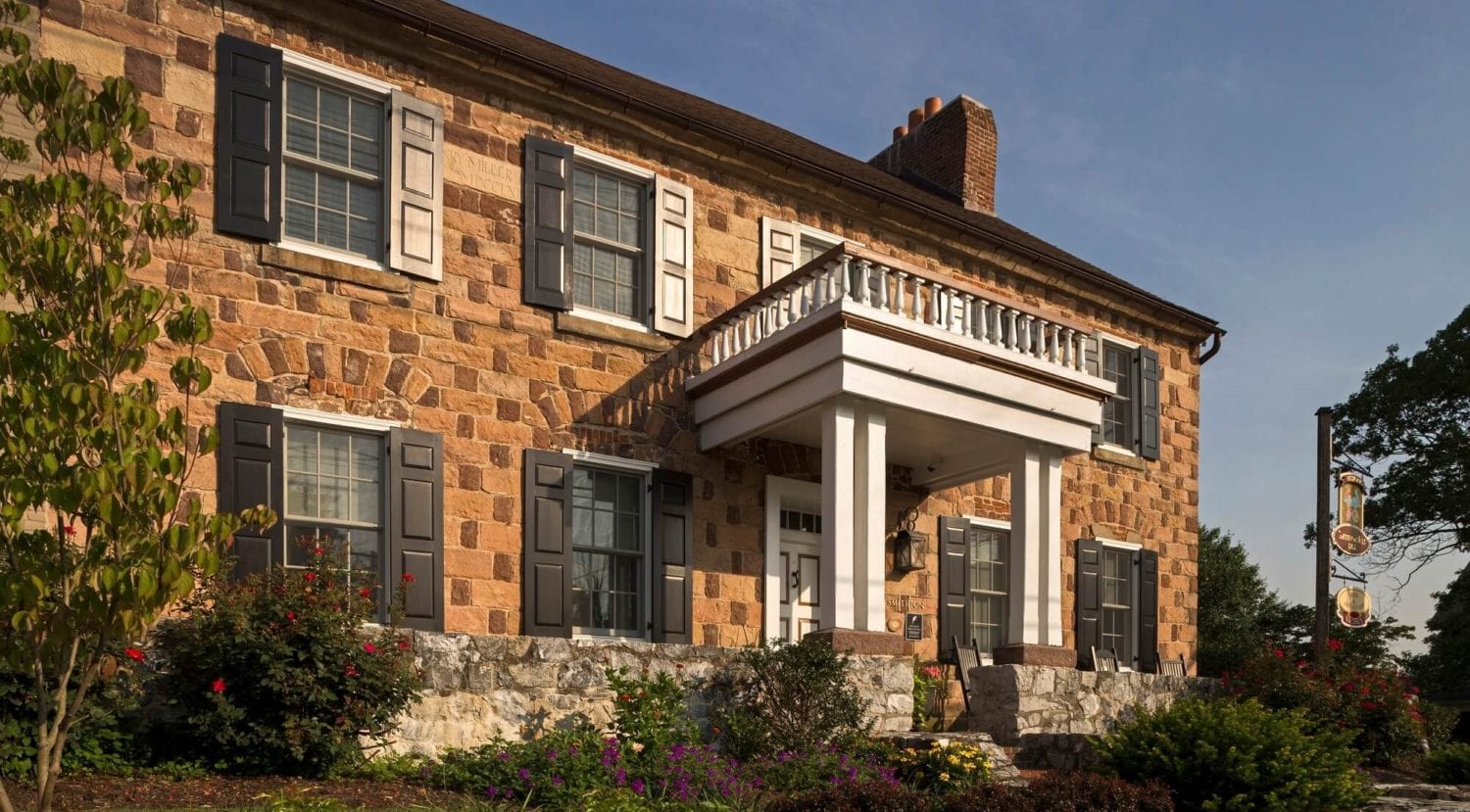 After a marvelous visit to the Ephrata Cloister, come home to your cozy room at the Historic Smithton Inn which was a “Householder House” during the earliest days of the Ephrata Cloister! Located less than a mile from the museum, you’ll experience the charm of Pennsylvania in our lovely Ephrata Bed and Breakfast, and relax in a soothing setting, surrounded by luxurious amenities.
After a marvelous visit to the Ephrata Cloister, come home to your cozy room at the Historic Smithton Inn which was a “Householder House” during the earliest days of the Ephrata Cloister! Located less than a mile from the museum, you’ll experience the charm of Pennsylvania in our lovely Ephrata Bed and Breakfast, and relax in a soothing setting, surrounded by luxurious amenities.
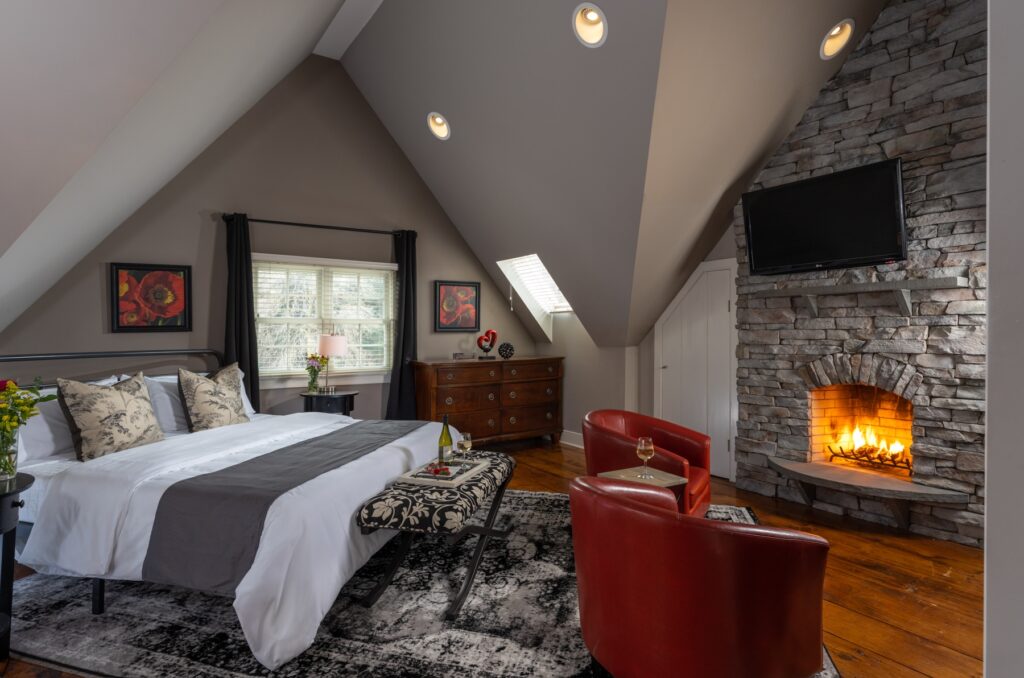
Our historic Ephrata Inn offers a choice of nine guest suites. They’re all finely decorated and boast their own unique atmosphere. Take a look at our King Suites, for example! You’ll love the antiques and handcrafted furniture. In the evening, you can unwind in the rain shower or jacuzzi tub or sip on a glass of wine by the fireplace. After a good night’s sleep, join us downstairs where a delicious homemade breakfast awaits you.
If you enjoyed this post about 5 Reasons to Visit the Ephrata Cloister, you might enjoy these too:
- Christmas in Lancaster
- Fall Things to do in Lancaster
- Christmas at the Cloister
- Things to do in Lancaster PA on Sunday
Historic Ephrata Cloister FAQs
Who lived at Ephrata Cloister?
The Ephrata Cloister was founded in 1742 by Conrad Beissel and German immigrants who were fleeing religious persecution in their homeland. The first settlers arrived in 1741, and they built homes and barns along the banks of the Lehigh River. They named their new community after an area near Bethlehem called Ephrata, meaning “house of God.”. The congregation completed the first church in 1743 and dedicated it to St. Mary Magdalene.
Is the Ephrata Cloister Pet Friendly?
Pets and their well behaved owners may enjoy a stroll through the grounds and picnic areas of the Cloister. The main visitors center and buildings on the tour cannot accommodate pets unless they are service dogs. However, the staff asks that service dog owners clean up after their service pets.
When is Ephrata Cloister Open?
In the past, the Ephrata Cloister/Ephrata community was open for tours every day except Thanksgiving, Christmas Eve, New Year’s Eve, Easter, Memorial Day, Independence Day, Labor Day, Halloween, Thanksgiving Day and Christmas Day. As the museum transitions out of Covid closures, the schedule continues to evolve. The hours of operation from now to May 31, 2022 are Friday & Saturday from 10 am – 4 pm and Sunday from Noon – 4 pm. Before you visit, we suggest you check the Cloister’s website to see if days and times have changed.
Exhibits in Ephrata Cloister
Ephrata Cloister has many exhibits and displays throughout its grounds. You can experience the everyday life and religious life of this popular area.
Public Hours of The Ephrata Cloister Museum
The museum is open Friday – Saturday from 10 am – 4 pm, Sunday from 12 noon – 4 pm.
How to Get More Information on Ephrata Cloister?
The Ephrata Cloister Associates, a non-profit organization, administer the Cloister Buildings. You can contact the site director, Elizabeth Bertheaud, during business hours. The Cloister is one of 26 historic sites and museums on the Pennsylvania Trail of History. For more information or to request a free 24-page visitor guide, visit www.phmc.pa.gov or phone toll free 1-866-PATRAIL.
